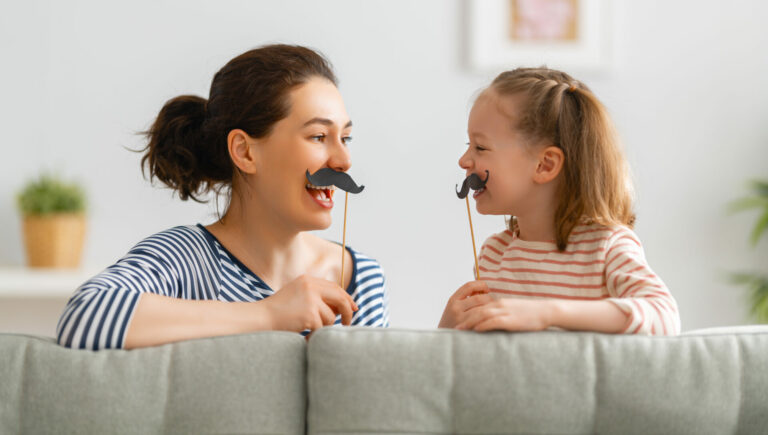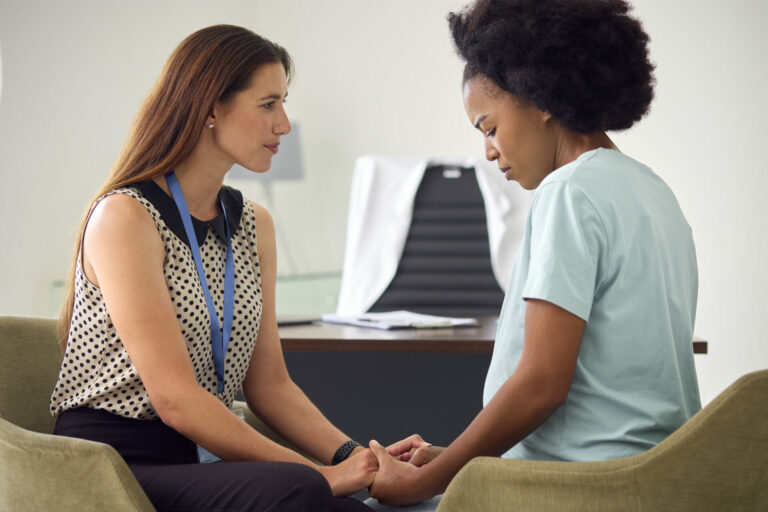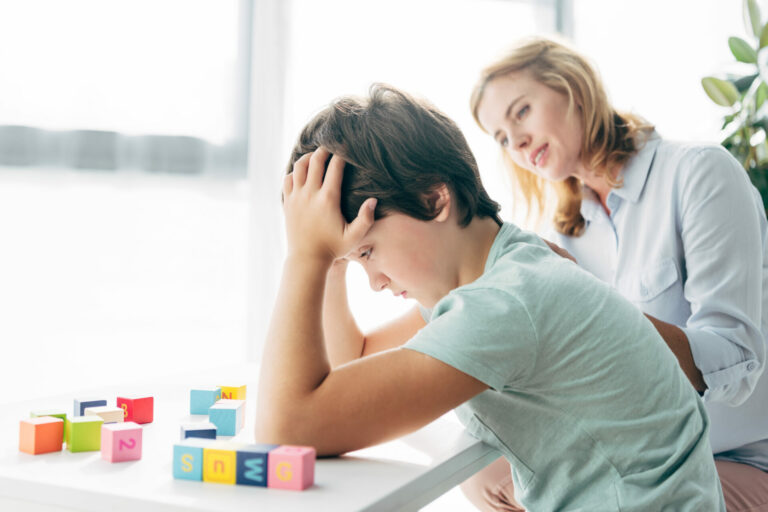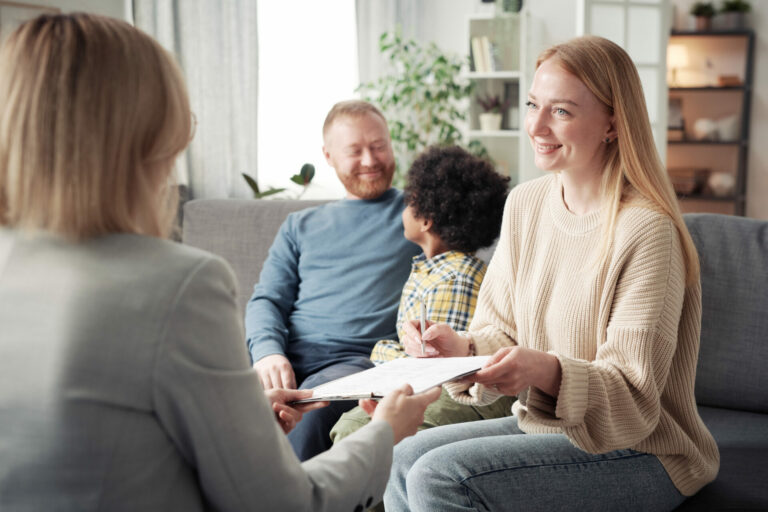Last month we talked about grief as a confusing, complex process. So, what makes it even more complex? Grieving WITH someone else! Differences in grieving are a common source of pain among couples and families when our pain doesn’t feel honored by our loved ones. The reality is that grief is an individual process with no predictable pattern or “right” way.
Although some models of grief suggest there are stages of grief (Kubler-Ross, 1970; Worden, 2009), grieving isn’t linear. Some days are good, others are dismal, with the rest somewhere in between. Your good day may be your partner, friend, relative, or child’s bad day. And contrary to what you might think, both of you having a bad day on the same day isn’t always comforting.
Not only are the emotions of grieving different for each of us, as well as the timing of those emotions, but how we handle the emotions is often different. Some people are highly emotional and become tearful, while others hold their emotions inside and might engage more in work or activities to distract themselves. Some people isolate themselves and others want to grieve in community. Some people want to take action and others want to let it go. Conflict often arises between grieving people about how the other is, or doesn’t appear to be, grieving.
What can you do if you find yourself grieving alongside a loved one?
- Give yourself, and your loved one, permission to grieve in your way. More outward emotion doesn’t always mean more grieving than less outward emotion. How emotional we appear on the outside is not a thermometer of how important the person or thing lost was, how much we loved or cared about the person or thing, or how hurt we are by the loss.
- Ask your loved one what they need on their bad days, and communicate what you need too. If we grieve differently, it makes sense that what we need in support may differ as well. Before you assume, and miss the mark, ask your loved one what helps them most on their bad days. Some people will want to be left alone; others want more community. Often, we don’t ask, and when we offer what we think would be helpful it can be rejected and then we feel hurt.
- Avoid big decisions for a while. When you’re grieving, it is not a good time to make big life decisions because your rational, thinking brain is tempered. Now is not the time to decide to quit your job and become a missionary family or sell your house and live the RV, homeschooling life. Allow yourself, and your loved ones, time to adjust to life after loss, and with your full capacities make decisions that will impact your future and your family.
Grief and sorrow can bring us together – when we allow for differences and honor each other’s needs. Remember that you are on a journey together, without a roadmap, and allow for detours and rerouting.
Last month we talked about grief as a confusing, complex process. So, what makes it even more complex? Grieving WITH someone else! Differences in grieving are a common source of pain among couples and families when our pain doesn’t feel honored by our loved ones. The reality is that grief is an individual process with no predictable pattern or “right” way.
Although some models of grief suggest there are stages of grief (Kubler-Ross, 1970; Worden, 2009), grieving isn’t linear. Some days are good, others are dismal, with the rest somewhere in between. Your good day may be your partner, friend, relative, or child’s bad day. And contrary to what you might think, both of you having a bad day on the same day isn’t always comforting.
Not only are the emotions of grieving different for each of us, as well as the timing of those emotions, but how we handle the emotions is often different. Some people are highly emotional and become tearful, while others hold their emotions inside and might engage more in work or activities to distract themselves. Some people isolate themselves and others want to grieve in community. Some people want to take action and others want to let it go. Conflict often arises between grieving people about how the other is, or doesn’t appear to be, grieving.
What can you do if you find yourself grieving alongside a loved one?
- Give yourself, and your loved one, permission to grieve in your way. More outward emotion doesn’t always mean more grieving than less outward emotion. How emotional we appear on the outside is not a thermometer of how important the person or thing lost was, how much we loved or cared about the person or thing, or how hurt we are by the loss.
- Ask your loved one what they need on their bad days, and communicate what you need too. If we grieve differently, it makes sense that what we need in support may differ as well. Before you assume, and miss the mark, ask your loved one what helps them most on their bad days. Some people will want to be left alone; others want more community. Often, we don’t ask, and when we offer what we think would be helpful it can be rejected and then we feel hurt.
- Avoid big decisions for a while. When you’re grieving, it is not a good time to make big life decisions because your rational, thinking brain is tempered. Now is not the time to decide to quit your job and become a missionary family or sell your house and live the RV, homeschooling life. Allow yourself, and your loved ones, time to adjust to life after loss, and with your full capacities make decisions that will impact your future and your family.
Grief and sorrow can bring us together – when we allow for differences and honor each other’s needs. Remember that you are on a journey together, without a roadmap, and allow for detours and rerouting.
References
Kübler-Ross, E. (1970). On death and dying. Collier Books/Macmillan Publishing Co.
Worden, J. W. (2009). Grief Counseling and Grief Therapy: A Handbook for the Mental Health Practitioner, Fourth Edition, Springer, N.Y.
References
Kübler-Ross, E. (1970). On death and dying. Collier Books/Macmillan Publishing Co.
Worden, J. W. (2009). Grief Counseling and Grief Therapy: A Handbook for the Mental Health Practitioner, Fourth Edition, Springer, N.Y.




